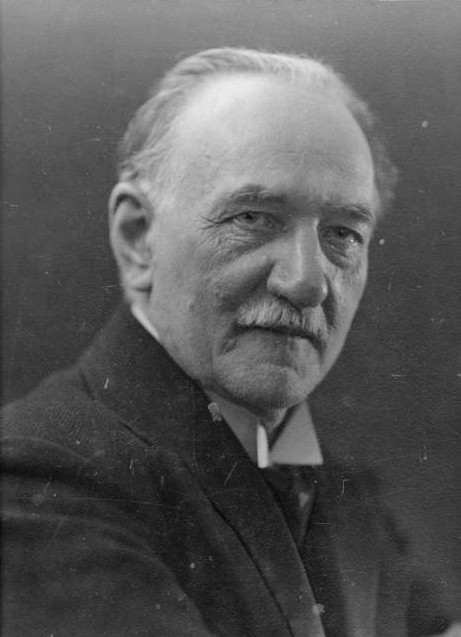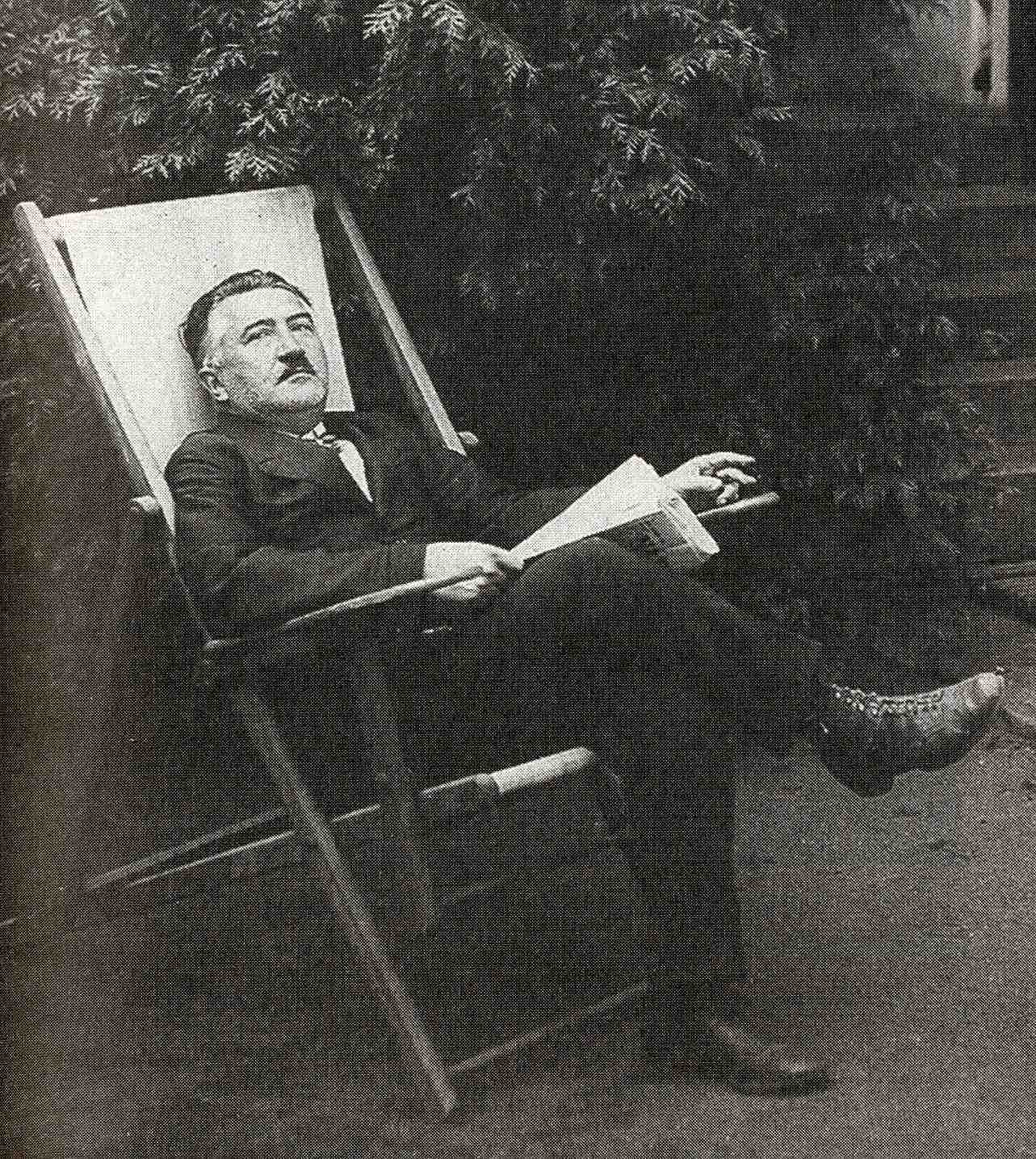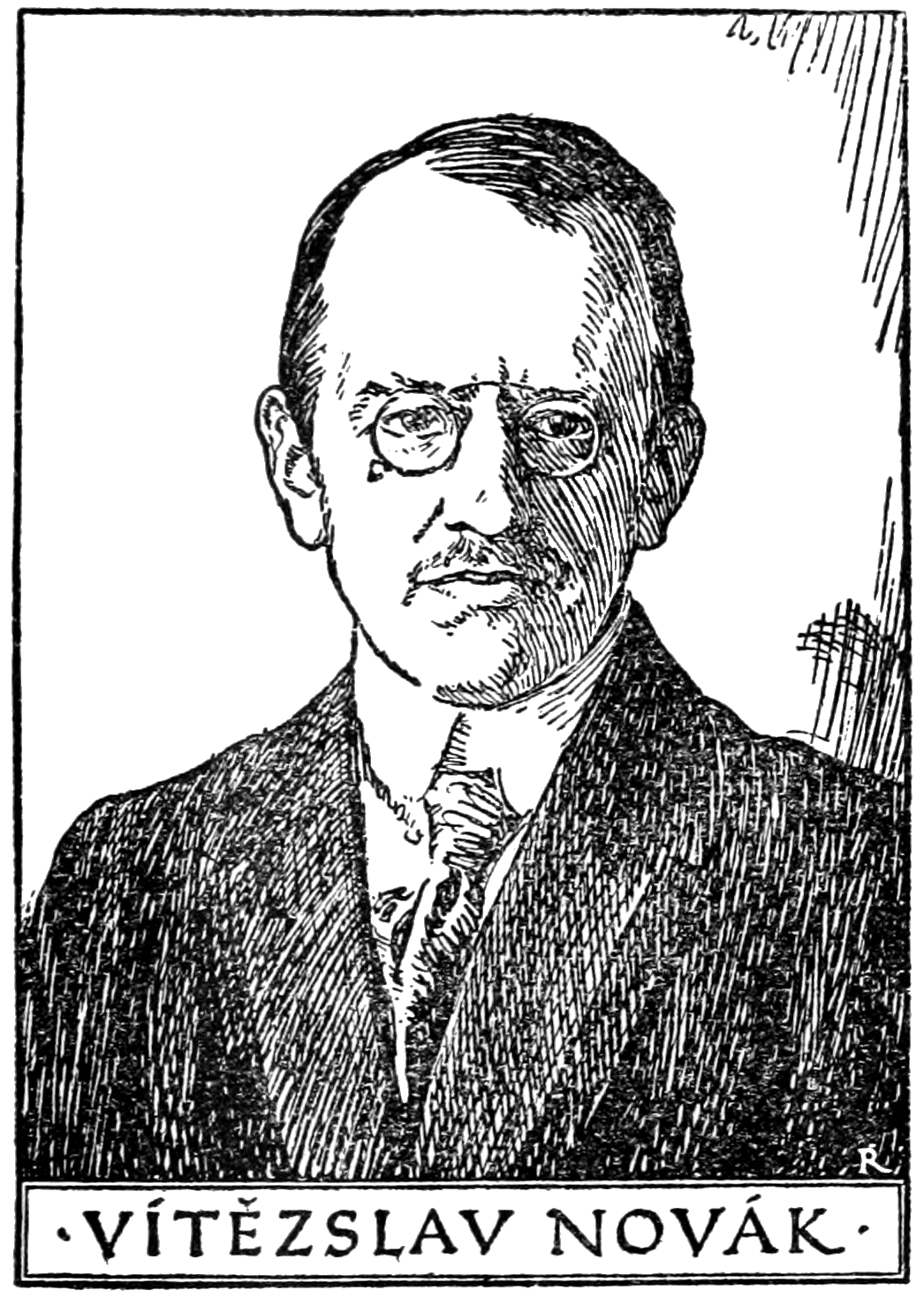|
Emanuel ChvûÀla
Emanuel ChvûÀla (January 1, 1851 in Prague ã October 28, 1924 in Prague) was a Czech composer and music critic. He studied engineering and worked all his life as a railway official in Prague. But he had also studied composition with Fibich and Josef Foerster, and began writing music criticism for the literary magazine ''LumûÙr'' in 1878. He also wrote for the daily newspapers ''Politik'' and ''NûÀrodnûÙ politika'' between 1880 and 1921 using the cypher ã-laã. In his journalism he furthered the music of DvoéûÀk, Fibich, Josef Suk and VûÙtázslav NovûÀk. Works * '' ZûÀboj'' (1918), an opera to a poem by Jaroslav Vrchlickû§. * ''O posvûÙcenûÙ'' (1902), an orchestral poem describing the day of the kermis in a Czech village. (WP: 16. February 1902 by the Czech Philharmonic under LudvûÙk áelanskû§ LudvûÙk or Ludvik is a given name. Notable people with the name include: *LudvûÙk AéÀkenazy (1921ã1986), Czech writer and journalist *Ludvik Buland (1893ã1945), Norwegian trad ... [...More Info...] [...Related Items...] OR: [Wikipedia] [Google] [Baidu] |
Jan VilûÙmek - Emanuel ChvûÀla
Jan, JaN or JAN may refer to: Acronyms * Jackson, Mississippi (Amtrak station), US, Amtrak station code JAN * Jackson-Evers International Airport, Mississippi, US, IATA code * Jabhat al-Nusra (JaN), a Syrian militant group * Japanese Article Number, a barcode standard compatible with EAN * Japanese Accepted Name, a Japanese nonproprietary drug name * Job Accommodation Network, US, for people with disabilities * ''Joint Army-Navy'', US standards for electronic color codes, etc. * ''Journal of Advanced Nursing'' Personal name * Jan (name), male variant of ''John'', female shortened form of ''Janet'' and ''Janice'' * Jan (Persian name), Persian word meaning 'life', 'soul', 'dear'; also used as a name * Ran (surname), romanized from Mandarin as Jan in WadeãGiles * JûÀn, Slovak name Other uses * January, as an abbreviation for the first month of the year in the Gregorian calendar * Jan (cards), a term in some card games when a player loses without taking any tricks or scoring a mini ... [...More Info...] [...Related Items...] OR: [Wikipedia] [Google] [Baidu] |
Prague
Prague ( ; ) is the capital and List of cities and towns in the Czech Republic, largest city of the Czech Republic and the historical capital of Bohemia. Prague, located on the Vltava River, has a population of about 1.4 million, while its Prague metropolitan area, metropolitan area is home to approximately 2.3 million people. Prague is a historical city with Romanesque architecture, Romanesque, Czech Gothic architecture, Gothic, Czech Renaissance architecture, Renaissance and Czech Baroque architecture, Baroque architecture. It was the capital of the Kingdom of Bohemia and residence of several Holy Roman Emperors, most notably Charles IV, Holy Roman Emperor, Charles IV (r. 1346ã1378) and Rudolf II, Holy Roman Emperor, Rudolf II (r. 1575ã1611). It was an important city to the Habsburg monarchy and Austria-Hungary. The city played major roles in the Bohemian Reformation, Bohemian and the Protestant Reformations, the Thirty Years' War and in 20th-century history a ... [...More Info...] [...Related Items...] OR: [Wikipedia] [Google] [Baidu] |
Zdenák Fibich
Zdenák Fibich (, 21 December 1850 in VéÀeboéice ã 15 October 1900 in Prague) was a Czech composer of classical music. Among his compositions are chamber works (including two string quartets, a piano trio, piano quartet and a quintet for piano, strings and winds), symphonic poems, three symphonies, at least seven operas (the most famous probably '' é ûÀrka'' and '' The Bride of Messina''), melodramas including the substantial trilogy ''Hippodamia'', liturgical music including a mass ã a ''missa brevis''; and a large cycle (a total of 376 pieces, from the 1890s) of piano works called ''Moods, Impressions, and Reminiscences''. The piano cycle served as a diary of sorts of his love for a piano pupil, and one of the pieces formed the basis for the short instrumental work ''Poû´me'', for which Fibich is best remembered today. Early life and education That Fibich is far less known than either AntonûÙn DvoéûÀk or Bedéich Smetana can be explained by the fact that he lived during ... [...More Info...] [...Related Items...] OR: [Wikipedia] [Google] [Baidu] |
Josef Bohuslav Foerster
Josef Bohuslav Foerster (30 December 1859 ã 29 May 1951) was a Czech composer and musicologist. He is often referred to as J. B. Foerster, and his surname is sometimes spelled FûÑrster. Life Foerster was born in Prague. His ancestors were of Bohemian German ethnicity, but had assimilated into the Czech community. The family normally lived in Prague and was musical. His father, a composer also named Josef Foerster, taught at the Conservatory. (His father's students included Franz LehûÀr.) His brother was artist Viktor Foerster. Josef was educated accordingly, and duly studied there. He also showed an early interest in the theatre, and thought of becoming an actor. He taught music; one of his early students was composer and Stuttgart court pianist Anna Sick. From 1884 Foerster worked as a critic, and he would prove to be a writer of distinction. In 1893 he married the leading Czech soprano Berta LautererovûÀ (Bertha Lauterer) in Hamburg, during ten years making his living ... [...More Info...] [...Related Items...] OR: [Wikipedia] [Google] [Baidu] |
LumûÙr
''LumûÙr'' is a weekly literary magazine that was established in 1851 by Ferdinand Béetislav Mikovec. It was the focal point of the neo-romantic nationalist poet Jaroslav Vrchlickû§ and his Ossianic followers.Arne NovûÀk & William Edward Harkins, ''Czech literature'' , 1976: "These artistic leanings revealed the Lumir adherents as Neo-Romantics. Their enthusiasm for "restoring old paintings" was Romantic; Romantic was their ambition to integrate epic fragments into a unified "legend of an era;" Romantic was ..." LumûÙr is the name of a bard in Czech legend. The magazine's followers were known by the same name as the magazine. The writers and artists involved started a new direction in Czech culture. Previously culture was seen as coming from Germans and sources in German. German poets like Heinrich Heine Christian Johann Heinrich Heine (; ; born Harry Heine; 13 December 1797 ã 17 February 1856) was an outstanding poet, writer, and literary criticism, literary critic of 19 ... [...More Info...] [...Related Items...] OR: [Wikipedia] [Google] [Baidu] |
AntonûÙn DvoéûÀk
AntonûÙn Leopold DvoéûÀk ( ; ; 8September 18411May 1904) was a Czech composer. He frequently employed rhythms and other aspects of the folk music of Moravia and his native Bohemia, following the Romantic-era nationalist example of his predecessor Bedéich Smetana. DvoéûÀk's style has been described as "the fullest recreation of a national idiom with that of the symphonic tradition, absorbing folk influences and finding effective ways of using them," and DvoéûÀk has been described as "arguably the most versatile... composer of his time". DvoéûÀk displayed his musical gifts at an early age, being a talented violin student. The first public performances of his works were in Prague in 1872 and, with special success, in 1873, when he was 31 years old. Seeking recognition beyond the Prague area, he submitted scores of symphonies and other works to German and Austrian competitions. He did not win a prize until 1874, with Johannes Brahms on the jury of the Austrian State Competit ... [...More Info...] [...Related Items...] OR: [Wikipedia] [Google] [Baidu] |
Josef Suk (composer)
Josef Suk (4 January 1874 ã 29 May 1935) was a Czech composer, violinist, and Art competitions at the 1932 Summer Olympics, Olympic silver medalist. He studied under AntonûÙn DvoéûÀk, whose daughter he married. Biography From a young age, Josef Suk (born in Kéeáovice, Bohemia) was deeply involved and well trained in music. He learned organ, violin, and piano from his father, Josef Suk Sr., and was trained further in violin by the Czech violinist AntonûÙn Bennewitz. His theory studies were conducted with several other composers including Josef Bohuslav Foerster, , and . He later focused his writing on chamber works under the teachings of HanuéÀ Wihan. Despite extensive musical training, his musical skill was often said to be largely inherited. Though he continued his lessons with Wihan another year after the completion of his schooling, Suk's greatest inspiration came from another of his teachers, Czech composer AntonûÙn DvoéûÀk.Tyrell, Grove. Page 1 Known as one of Dvoéû ... [...More Info...] [...Related Items...] OR: [Wikipedia] [Google] [Baidu] |
VûÙtázslav NovûÀk
VûÙtázslav AugustûÙn Rudolf NovûÀk (5 December 1870 ã 18 July 1949) was a Czech composer and academic teacher at the Prague Conservatory. Stylistically, he was part of the neo-romantic tradition, and his music is considered an important example of Czech modernism. He worked towards a strong Czech identity in culture after the country became independent in 1918. His compositions include operas and orchestral works. Biography Early years NovûÀk (baptized Viktor NovûÀk) was born in Kamenice nad Lipou, a small town in Southern Bohemia. In 1872 the family moved to PoáûÀtky, where NovûÀk first studied the violin with AntonûÙn é ilhan and the piano with Marie KrejáovûÀ. After the death of his father in 1882, the family moved to Jindéiché₤v Hradec, where NovûÀk continued his studies at grammar school . An elementary school in the town is named after NovûÀk today. In his late teens, he moved to Prague to study at the Prague Conservatory, changing his name to VûÙtázslav to i ... [...More Info...] [...Related Items...] OR: [Wikipedia] [Google] [Baidu] |
ZûÀboj
ZûÀboj and Slavoj are two invented national heroes of the Czech past, two minstrel-warriors. They are found in VûÀclav Hanka's spurious medieval Manuscripts of Dvé₤r KrûÀlovûˋ and of ZelenûÀ Hora, Manuscript of Dvé₤r Kralovûˋ, allegedly "discovered" in 1817 in the tower of a local church and not exposed as a literary hoax, by Jan Gebauer in TomûÀéÀ Garrigue Masaryk, Masaryk's journal ''Thomas Masaryk, Athenaeum'', until 1886. Cultural legacy * ''ZûÀboj'' (completed 1859) is an unstaged opera written by the music critic Josef Leopold Zvonaé for the opening of a Czech national opera, but never performed. The plot follows the exploits of the legendary hero ZûÀboj from the Manuscripts of Dvé₤r KrûÀlovûˋ and of ZelenûÀ Hora, Manuscript of Dvé₤r KrûÀlovûˋ. Bedéich Smetana, a friend of Zvonaé, conducted two extracts to some success, and ZûÀboj's Act 1 aria - exhorting the men of Bohemia to stand against the enemy - was recorded by Ivan Kusnjer for a Panton LP in 1984. * The first sympho ... [...More Info...] [...Related Items...] OR: [Wikipedia] [Google] [Baidu] |





